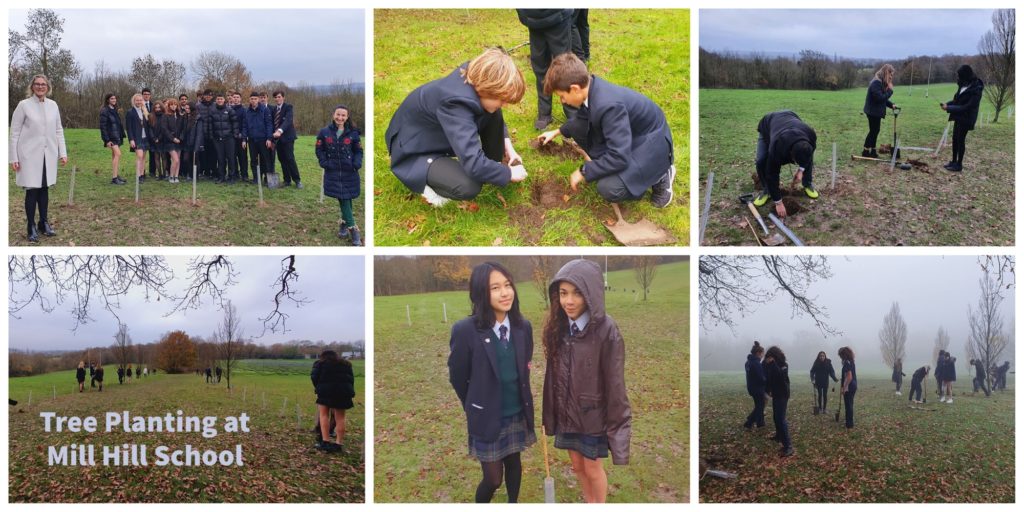
- HOME
- EDUCATION
Fantastic Tree Planting & More at Mill Hill School
By | 3 years ago
Mill Hill School planted 210 trees in November 2020 across their school grounds as part of Eco Week – Kinuri from the Lower Sixth tells us more...

Eco week marked a momentous event for Mill Hill School as we took one of our first steps towards a greener future. Organised by the Eco Society, members of the school were encouraged to take part in tree planting sessions on the school grounds between the 16th and 30th of November 2020.
The response was phenomenal with members from all across the school enthusiastically joining in, such as pupils from the Fourth Form, teachers and maths pupils in the Fifth and Lower Sixth form too.
As a result of all the hard work and dedication, an impressive 210 trees were planted across the school grounds, ranging from species such as dogwood to common oak to wild cherry. All saplings were provided by the Woodland Trust, an organisation that protects ancient woods from being cut down in a fight against rapid urban development.
Their aim was simple – to make small advancements towards a more sustainable and eco-friendly school that could inspire other places to follow suit.
The benefits of trees are bountiful; they absorb carbon dioxide cleaning the air we breathe in, provide homes for wildlife and also offer a calming space to clear the mind. Most of all pupils and staff members alike are looking forward to the beautiful blossoms, bright berries and stunning autumn displays in the years to come.
Protecting wildlife will be critical from now on, due to the exponential growth in demand for natural resources like energy and crops. If we don’t take care of our environment and carry on recklessly destroying forests, there will be no home for both humans and animals much sooner than one would expect.
Luckily, this was one of the many successful initiatives started by the school. Mill Hill is brimming with innovative ideas to reduce carbon emissions and waste, like purchasing food from Fairtrade suppliers, reducing red meat consumption by 80%, and changing to more efficient waste management companies.
The school has even started beekeeping in order to protect endangered species, and students can now enjoy fresh, locally produced honey. Bees are key pollinators so are vital in maintaining the world’s ecosystem. Without them, we wouldn’t have any plants or flowers and the animals that live off them would suffer too.
Though the future seems bleak, any change, big or small can collaboratively make the world a healthier and safer place to live in for generations to come…



